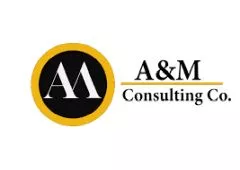- within Accounting and Audit topic(s)
- within Finance and Banking and Energy and Natural Resources topic(s)
Turkish CPA: Financial Guide for Investors & Business Owners
Are you planning to start a business in Turkey? Whether you're a local entrepreneur or an international investor, working with a Turkish CPA (Certified Public Accountant) – known locally as an SMMM (Serbest Muhasebeci Mali Müşavir) – is essential for ensuring tax compliance, accurate financial reporting, and long-term success.
In this article, we'll explain everything you need to know about Turkish CPAs, their qualifications, services, and how they can support your business in Turkey.
What is a Turkish CPA (SMMM)?
A Turkish CPA, known as a Serbest Muhasebeci Mali Müşavir (SMMM), is a licensed professional accountant in Turkey who provides financial, tax, audit, and advisory services to businesses and individuals. The CPA designation in Turkey is regulated by the Union of Chambers of Certified Public Accountants of Turkey (TÜRMOB).
Qualifications of a Turkish CPA
To become a Certified Public Accountant in Turkey, professionals must go through a strict licensing process:
- Bachelor's degree in economics, business, accounting, or finance
- Completion of a mandatory internship (minimum 3 years)
- Passing the SMMM exam conducted by TÜRMOB
- Registration with the local Chamber of CPAs
This ensures that Turkish CPAs are highly skilled and qualified to assist with complex financial tasks for both local and foreign clients.
Key Differences of Turkish CPA vs. UK CCA vs. US CPA
|
Criteria |
Turkish CPA (SMMM) | UK CCA | US CPA |
| Governing Body | TÜRMOB | ACCA | AICPA & NASBA |
| Exam Structure | 3 Stages (Written & Oral) | 3 Stages (Written) | 4 Sections (FAR, AUD, REG, BEC) |
| Work Experience | 3 Years Required | 3 Years Required | 1-2 Years (Varies by State) |
| Global Recognition | Primarily Turkey | Globally Recognized | Globally Recognized |
| Language | Turkish | English | English |
What Services Does a Turkish CPA Provide?
1. Tax Advisory and Filing
- Corporate Income Tax (CIT)
- Value Added Tax (VAT)
- Withholding Tax (WHT)
- Personal Income Tax (for employees and directors)
- Tax incentives and exemptions (e.g., R&D, export-based incentives)
2. Bookkeeping & Financial Reporting
- Preparation of financial statements in compliance with Turkish GAAP
- Monthly bookkeeping
- Journal and ledger entries
- Balance sheets and profit & loss statements
3. Payroll & HR Compliance
- Employee salary calculation
- Social security declarations
- Monthly payroll reporting
- Employee tax & premium payments
4. Company Setup & Business Advisory
- Legal entity selection (Limited Company, JSC, Branch, Liaison Office)
- Commercial registration and tax registration
- Opening bank accounts
- Ongoing consultancy for investors and foreign businesses
5. Audit
- Conducting internal and external audits
- Ensure financial transparency and compliance with legal regulations.
6. Consultancy For General Assembly
- Consultancy services on holding and registering ordinary or extraordinary general assembly meetings in accordance with the procedures and principles.
7. Advisory
- Providing strategic advice
- Tax planning
- Financial planning
- Risk management
- Investment opportunities
8. CFO Services
- Navigating Economic Uncertainty
- Ensuring Regulatory Compliance
- Optimizing Cash Flow and Financial Planning
- Cost Efficiency and Profitability Management
- Strategic Decision-Making and Business Growth
- Fundraising and Investor Relations
- Digital Transformation and Financial Automation
Why Foreign Investors Need a Turkish CPA
If you're a foreign investor, operating in Turkey requires detailed knowledge of local tax laws, labor regulations, and financial procedures. A local CPA ensures:
✅ Full compliance with Turkish Tax Legislation
✅ Timely submissions to Tax Office & Social Security
Institution (SGK)
✅ Transparent and accurate financials for banks or
investors
✅ Support in case of a tax audit or inspection
✅ Guidance on benefiting from incentive
programs
How Much Does It Cost to Hire a CPA in Turkey?
The cost of engaging a CPA in Turkey varies depending on the complexity of the services required, the accountant's level of expertise, and the size and nature of the business. Common pricing models include:
- Monthly Billing: Ideal for ongoing services such as bookkeeping, payroll processing, and regular tax compliance.The average monthly fee ranges from €350 – €500.
- Hourly Billing: Applied to ad hoc services, including consultancy sessions, tax filings, or audit preparations.The average hourly fee ranges from €1,500 – €2,500.
- Project-Based Pricing: Used for more complex or one-off assignments such as company formation, capital increases, changes in company address, appointments or dismissals of managers, corporate restructuring, or comprehensive tax audits.The average fee ranges from €3,500 – €5,000.
To avoid misunderstandings, it's recommended to clarify the fee structure in advance and ensure it aligns with your financial planning.
Finding a Trusted CPA in Turkey
When choosing a CPA firm in Istanbul, Ankara, or Izmir, consider the following:
- Experience with international clients
- Proficiency in English or other foreign languages
- Familiarity with double taxation treaties
- Strong references and TÜRMOB license
- Digital tools for efficient remote communication
The content of this article is intended to provide a general guide to the subject matter. Specialist advice should be sought about your specific circumstances.


